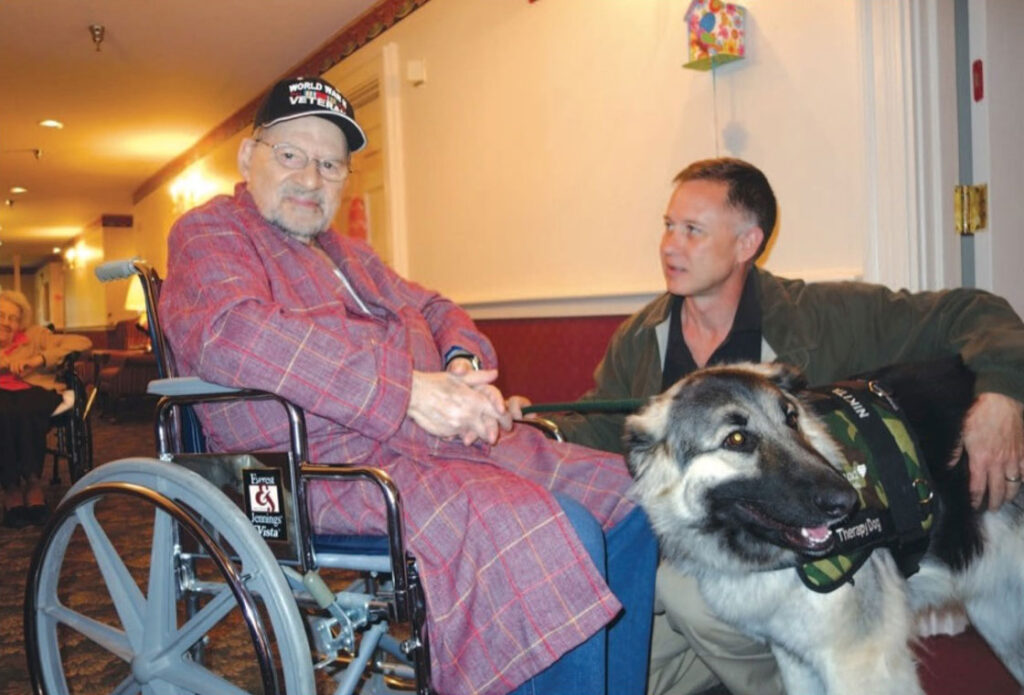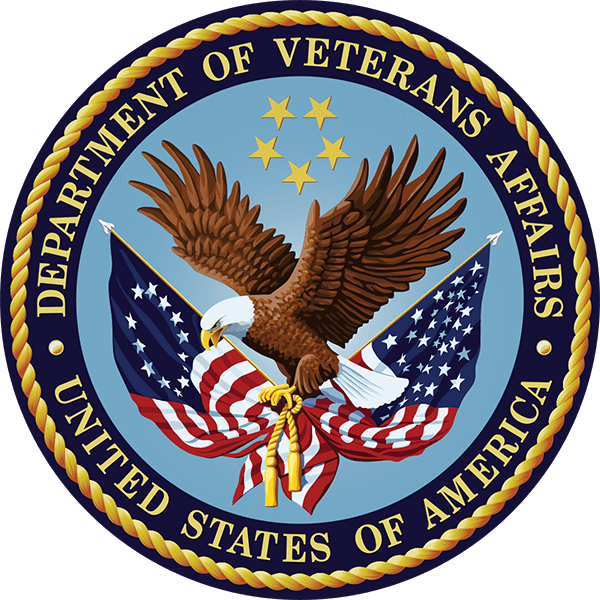We Honor Veterans has partnered with the Department of Veterans Affairs (VA) in an initiative to improve hospice care for terminally ill Veterans in community nursing homes. VA has been able to build a successful track record in caring for seriously ill Veterans at VA facilities and this initiative seeks to extend these lessons learned to those providing care in the community. This initiative is a natural extension of WHV and our shared long-term goals to share this expertise widely within nursing homes and improve the quality of care for Veterans, wherever they may be when they reach the end of life.
What is a Community Nursing Home?

A Community Nursing Home (CNH) is a place where Veterans can live full time and receive skilled nursing care any time of day or night. VA contracts with nursing homes to care for Veterans and the CNH program is offered in many communities across the country so Veterans can receive care near their homes and families. More information on Community Nursing Homes can be found on the VA’s factsheet.
Community Nursing Homes are different than Community Living Centers. A Community Living Center (CLC) is a VA-run Nursing Home. Veterans may stay for a short time or, in rare instances, for the rest of their life. It is a place where Veterans can receive nursing home level of care, which includes help with activities of daily living and skilled nursing and medical care. There are over 100 Community Living Centers across the country. More information can be found on the VA’s CLC webpage and you can see a listing of the current VA Community Living Center Locations.
Resources and Trainings to Help Partners Improve End-of-life Care in Community Nursing Homes
All resources produced by this initiative will be posted for all to access on the WHV website as they develop, with the aim to build confidence and promote fulfillment among frontline staff (mostly nursing assistants) while at the same time, sharing important quality of care elements about the uniqueness of Veterans at end of life.
The pilot program will involve 5 trainings with a goal to be as interactive as possible and largely geared to nursing assistants. Where possible, presenters will provide the learners with sample language to use when talking with families. The five modules include:
Overview for Frontline Staff and Supervisors – Back to Basics
An introduction to military culture and how and which questions to ask Veteran patients as well as the importance, steps, and examples of honor ceremonies and how the interprofessional team and family unit can be included.
Identifying and Addressing Sources of Suffering
How to identify common symptoms and sources of suffering, the role of the Nursing Assistant/Caregiver and interventions to palliate symptoms, and supporting those who may be suffering even if you can’t fix it.
Addressing Trauma and Its Impact
An overview of the impact of military service, gender, and age including methods of therapeutic communication with Veterans and their families. This module also addresses how staff can deal with manifestations of trauma or moral injury.
Caring for Veterans in Their Final Hours
How to identify the common signs and symptoms of the dying process, examples of supportive comments for Veterans and their families, and appreciating the fulfillment from quality care at end of life.
Ceremonies to Honor and Remember
See the importance and process of a pinning ceremony through various video examples and recognize the role of the interprofessional team and others in honoring Veterans, their loved ones, and ceremonies of remembrance.
Best Practices for Improving Veteran’s End of Life Care in Community Nursing Homes
As part of the Community Nursing Home Initiative (CNHI) pilot program, the five training modules listed above were integrated by WHV hospice providers into targeted training for CNH facility staff with the goal of improving hospice care for terminally ill Veterans in VA-contracted community nursing homes (CNH).
A number of insightful lessons were learned from this pilot program that can inform future hospice providers’ efforts to provide education to CNH’s on caring for Veterans at end-of-life.
Who Benefits Most From This Training?
Given nursing assistants spend the most time delivering hands-on care to Veterans in nursing home settings, the CNHI training modules are most valuable for nursing assistant employees of the CNH facility team. While CNH staff schedules and turnover can make training attendance challenging, supportive facility administration is key to overcoming staffing barriers. Additionally, hospice partners who choose to integrate these modules into CNH education in the future, might consider offering trainings in flexible and accessible formats to increase facility employee participation.
How Should These Trainings Be Delivered?
Optimally, the 5 training modules should be delivered by a community hospice facilitator who is trained and knowledgeable about the delivery of hospice care in nursing facilities. Trainings scheduled in short, frequent intervals are best for meeting the needs of CNH staff.
Realizing the challenges of bringing nursing facility staff together for in-person trainings, WHV hospice providers integrating these modules into CNH education in the future may choose to offer a virtual, asynchronous option. Including pre and post testing to ascertain the impact of these trainings on CNH staff is imperative. Additionally, providers wishing to integrate these trainings in the future may consider combining virtual training completion with in-person debriefing sessions with the community hospice facilitator. This has the potential to provide a more in-depth review of the material as well as support for nursing staff in delivering this often emotionally sensitive care.
What Benefits Did These Trainings Produce?
Following their participation in the CNHI trainings, CNH staff reported improved effectiveness with the following skills:
- Using non-drug therapies for common end-of-life symptoms
- Honoring Veteran residents with special ceremonies
- Caring for Veterans from different cultural groups
- Coping with resident-family conflicts about end-of-life care
- Meeting providers’ own self-care needs when working with residents at the end of life
As a WHV partner, utilizing these best practices to provide education to CNH’s on Veteran-centric end of life care can help your organization complete your community engagement requirement to earn your next WHV Level!
Understanding Care Quality Across Nursing Homes
Dr. Melissa Wachterman, a practicing palliative care physician with the VA Boston Healthcare System, held a webinar on Comparing Quality of Hospice Care in VA Nursing Homes and VA-Paid Community Nursing Homesa study exploring the difference in quality of hospice care provided to veterans in VA nursing homes compared to those receiving end of life care in community nursing homes that are paid for by the VA.
It discusses:
- Distinction between hospice care provided in VA nursing homes and VA-paid community nursing homes
- Use of the Bereaved Family Survey (BFS) as a source of data for understanding hospice quality.
- Demonstrated advantage of receiving end of life care in a VA nursing home
- Potential contributions to disparities in data
- Recommendations for policy and practice including expansion of “We Honor Veterans” into VA-contracted community nursing homes
Share This Information
We ask that any community providers who may be collaborating with nursing homes in their communities share these resources and encourage Veteran-centric trainings as well as the importance of pinning and honor ceremonies.
If you’d like to be connected with a VA-contracted nursing home please reach out to us at veterans@nhpco.org
Working Together to Provide Great Care
Ensuring that excellent care at the end of life is available for our nation’s Veterans and their families is our goal. Our hospice-veteran partnerships establish an enduring network of hospice and VA professionals, Veterans, volunteers, and other interested organizations working together to provide quality services through the end of life for Veterans. Learn more about the initiative and how it can benefit you.



